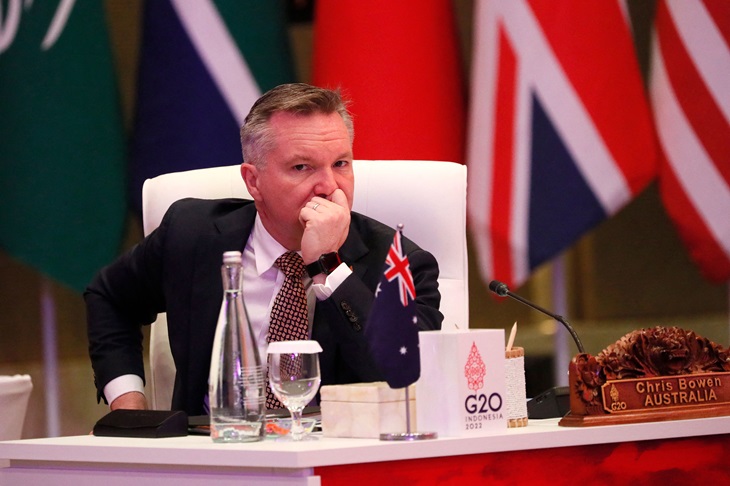
The clash of ideologies between Argentine President Javier Milei and Canadian Deputy Prime Minister Chrystia Freeland at the World Economic Forum in Davos has sparked a broader global debate on the role of government in economic development and social welfare. Milei, a proponent of free-market capitalism, warns against collectivist experiments and emphasizes the importance of individual freedom. On the other hand, Freeland believes in the role of government in creating a more inclusive society and addressing social and economic inequalities.
Milei's speech at the forum highlighted the dangers of socialism and the need for minimal state intervention. He criticized Western leaders for abandoning freedom and urged businesspeople not to be intimidated by the political caste. Milei's economic ideas include closing the central bank and adopting the US dollar. The IMF expressed support for Milei's radical agenda and announced the possibility of releasing funds to Argentina. However, Milei's economic reform measures have faced opposition from trade unions and sparked political protests in Argentina, which is currently facing a profound economic crisis.
Freeland, on the other hand, advocates for a more active role of government in addressing societal challenges. She recognizes the need for regulations and state intervention to address social and economic inequalities. Freeland's approach emphasizes the importance of investing in education, healthcare, and infrastructure to foster economic growth and ensure a fair distribution of wealth.
The clash of ideologies between Milei and Freeland reflects a broader global debate on the role of government in economic development and social welfare. The outcome of this debate has significant implications for the future direction of economic policies and the well-being of citizens in Argentina, Canada, and beyond.
The clash of ideologies between Milei and Freeland at Davos reflects a broader global debate on the role of government in economic development and social welfare. Milei argues that free trade capitalism is the only way to end poverty and hunger, criticizing state intervention and what he calls 'neo-marxists' who have co-opted media, culture, universities, and international organizations. He proposes a package of reforms to reduce regulatory barriers, privatize state assets, and reduce inflation in Argentina. On the other hand, Freeland believes in the role of government in creating a more inclusive society. She recognizes the need for regulations and state intervention to address social and economic inequalities. Freeland's approach emphasizes the importance of investing in education, healthcare, and infrastructure to foster economic growth and ensure a fair distribution of wealth.
The clash of ideologies between Milei and Freeland at Davos reflects a broader global debate on the role of government in economic development and social welfare. Milei argues that free trade capitalism is the only way to end poverty and hunger, criticizing state intervention and what he calls 'neo-marxists' who have co-opted media, culture, universities, and international organizations. He proposes a package of reforms to reduce regulatory barriers, privatize state assets, and reduce inflation in Argentina. On the other hand, Freeland believes in the role of government in creating a more inclusive society. She recognizes the need for regulations and state intervention to address social and economic inequalities. Freeland's approach emphasizes the importance of investing in education, healthcare, and infrastructure to foster economic growth and ensure a fair distribution of wealth.
The clash of ideologies between Milei and Freeland at Davos reflects a broader global debate on the role of government in economic development and social welfare. Milei argues that free trade capitalism is the only way to end poverty and hunger, criticizing state intervention and what he calls 'neo-marxists' who have co-opted media, culture, universities, and international organizations. He proposes a package of reforms to reduce regulatory barriers, privatize state assets, and reduce inflation in Argentina. On the other hand, Freeland believes in the role of government in creating a more inclusive society. She recognizes the need for regulations and state intervention to address social and economic inequalities. Freeland's approach emphasizes the importance of investing in education, healthcare, and infrastructure to foster economic growth and ensure a fair distribution of wealth.
The clash of ideologies between Milei and Freeland at Davos reflects a broader global debate on the role of government in economic development and social welfare. Milei argues that free trade capitalism is the only way to end poverty and hunger, criticizing state intervention and what he calls 'neo-marxists' who have co-opted media, culture, universities, and international organizations. He proposes a package of reforms to reduce regulatory barriers, privatize state assets, and reduce inflation in Argentina. On the other hand, Freeland believes in the role of government in creating a more inclusive society. She recognizes the need for regulations and state intervention to address social and economic inequalities. Freeland's approach emphasizes the importance of investing in education, healthcare, and infrastructure to foster economic growth and ensure a fair distribution of wealth.